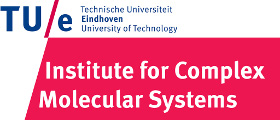Team:TU-Eindhoven/FutureProspects
From 2013.igem.org
(→Future Prospects) |
JacquesErnes (Talk | contribs) (→Kill Switch Implementation & Testing) |
||
| (4 intermediate revisions not shown) | |||
| Line 2: | Line 2: | ||
{{:Team:TU-Eindhoven/Template:MenuBar}} | {{:Team:TU-Eindhoven/Template:MenuBar}} | ||
| - | =Future | + | =Future Steps= |
| - | == | + | ==Testing Contrast Agents in Tissues== |
| + | To assess the ability of the bacteria to create enough contrast to be visualized by an MRI machine, further tests need to be performed. Therefore a suggestion is that the bacteria can be injected into engineered tissue, and MRI measurements could be taken on this tissue. This could be done by injecting the pellets obtained from the cultures of aerobic expression of the CEST proteins. | ||
| - | ==Kill Switch Implementation== | + | ==Promoter Testing & Optimization== |
| + | For more reliable measurements on the performance of the FNR promoter, more experiments should be done. First of all, protein expression should be performed at multiple oxygen concentrations to measure the activity of the promoter in a range of oxygen concentrations. | ||
| + | |||
| + | In the case that assessing the contrast agents under physiological conditions in the engineered tissues results in very low protein concentrations to get contrast, the promoter has to be optimized. This could be achieved by modifications of the constructs, so that other promoters become activated and increase the ability to get a higher protein expression. Consequently, further modifications and measurements should be performed to create a construct that leads to higher protein concentrations. | ||
| + | |||
| + | ==Kill Switch Implementation & Testing== | ||
| + | When tissue-engineered MRI measurements seem to be promising, one has to think about implementing kill switch mechanism(s), to ensure patients safety. First of all the Ganciclovir-Thymidine Kinase system could be implemented by transforming the bacterial device with the vector that contains the kill switch. Then the kill switch has to be tested. A simple experiment can be set up by spreading the bacteria that are transformed with the kill switch vector on an agar plate and incubating them after adding the prodrug in half of the agar plate. After a day, the colonies on both the halves of the agar plate can be counted, a decreased number of colonies is to be expected in the side of the plate in which the prodrug was used. | ||
| + | |||
| + | To ensure safety, the bacteria should contain multiple safety mechanisms, which can work independently. Further research has to be done on this part. | ||
==Decoy Sites== | ==Decoy Sites== | ||
| + | Optimization of the modelling part based on experimental data can be achieved by testing the initial model prediction at the lab. In order to do so, decoy sites can be added in front of the FNR promoter in the construct. | ||
| - | |||
Latest revision as of 11:51, 26 October 2013



Contents |
Future Steps
Testing Contrast Agents in Tissues
To assess the ability of the bacteria to create enough contrast to be visualized by an MRI machine, further tests need to be performed. Therefore a suggestion is that the bacteria can be injected into engineered tissue, and MRI measurements could be taken on this tissue. This could be done by injecting the pellets obtained from the cultures of aerobic expression of the CEST proteins.
Promoter Testing & Optimization
For more reliable measurements on the performance of the FNR promoter, more experiments should be done. First of all, protein expression should be performed at multiple oxygen concentrations to measure the activity of the promoter in a range of oxygen concentrations.
In the case that assessing the contrast agents under physiological conditions in the engineered tissues results in very low protein concentrations to get contrast, the promoter has to be optimized. This could be achieved by modifications of the constructs, so that other promoters become activated and increase the ability to get a higher protein expression. Consequently, further modifications and measurements should be performed to create a construct that leads to higher protein concentrations.
Kill Switch Implementation & Testing
When tissue-engineered MRI measurements seem to be promising, one has to think about implementing kill switch mechanism(s), to ensure patients safety. First of all the Ganciclovir-Thymidine Kinase system could be implemented by transforming the bacterial device with the vector that contains the kill switch. Then the kill switch has to be tested. A simple experiment can be set up by spreading the bacteria that are transformed with the kill switch vector on an agar plate and incubating them after adding the prodrug in half of the agar plate. After a day, the colonies on both the halves of the agar plate can be counted, a decreased number of colonies is to be expected in the side of the plate in which the prodrug was used.
To ensure safety, the bacteria should contain multiple safety mechanisms, which can work independently. Further research has to be done on this part.
Decoy Sites
Optimization of the modelling part based on experimental data can be achieved by testing the initial model prediction at the lab. In order to do so, decoy sites can be added in front of the FNR promoter in the construct.
 "
"



